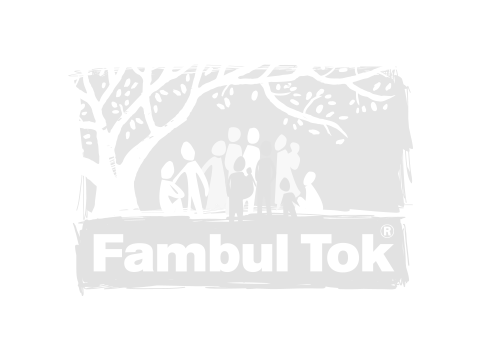
A farm in Mamuduya
Fambul Tok believes that linking reconciliation with development activities is essential to preserving the new peace. What do those community projects look like? In Madina, Malema chiefdom, Kailahun district, villagers have started constructing a guest house with their own resources. Ndaabu village in Luawa chiefdom, Kailahun will soon complete a court barrie (community center). In Rogbora, Moyamba, villagers have finished the construction of a Traditional Birth Attendants’ house. The list goes on and on.
Fambul Tok walks alongside these communities to support these efforts—but lately, we have to run! People in Koinadugu District are learning so fast. Without waiting for any organization to assist them they have already started community farming. Folosaba, Dembelia and Sengbe chiefdoms have cultivated acres of land and planted cassava and groundnut (peanuts) with their own tools and seed.
Some projects are addressing building and nourishing of a different kind. Seven sections in Koinadugu district have formed Fambul Tok support groups for women: Largo and Kamba sections in Folosaba Dembelia chiefdom, Kongbelefeh and Sokurella in Diang chiefdom, Koinadugu and Upper Kamadugu in Sengbeh and Kaponpoh in Wara Wara Bafodia chiefdom. These groups, called the Peace Mothers, address the unique needs of women affected by the war, and have even begun taking on development projects of their own.
Fambul Tok’s long-term commitment is unique. This encourages communities to come together and embark on development with their own resources, rather than waiting for external support. We believe communities have answers to to their problems and are humbled and inspired as we witness their solutions.

